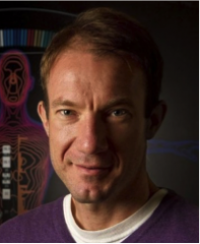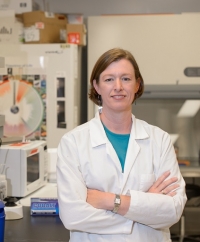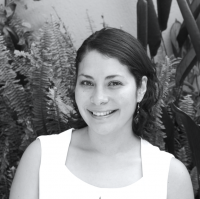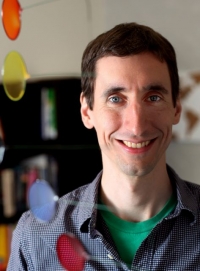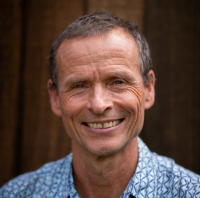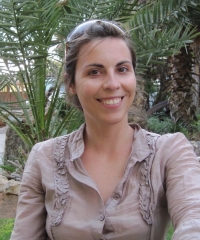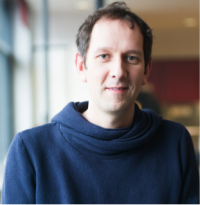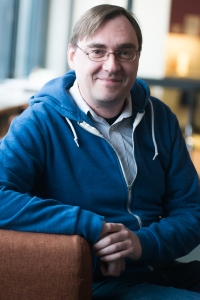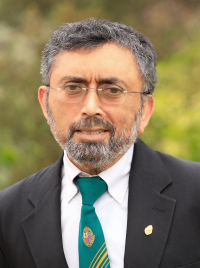Ancient DNA and Human Evolution
Biographical Sketches: Co-Chairs
University of California, Santa Cruz
Richard “Ed” Green is an assistant professor of biomolecular engineering, Baskin School of Engineering, UC Santa Cruz. Professor Green was born and raised in Atlanta, Georgia. He graduated from the University of Georgia in 1997 with a B.S. in genetics. He was a Peace Corps volunteer in Barentu, Eritrea in 1997 and 1998, teaching Math & Physics. He took his Ph.D. from the University of California, Berkeley in 2005. His advisor was Steven Brenner with whom he co-authored 14 papers on a wide-variety of computational biology subjects. In 2005, he joined Svante Paabo’s group at the Max Planck Institute for Evolutionary Biology as an NSF Postdoctoral fellow in Bioinformatics. There, he helped form and lead the Neandertal Genome Sequencing Consortium that sequenced the genome of our closest extinct relative from DNA recovered from 38,000 year old bones. This paper won the Newcomb Cleveland Prize for the best paper in the journal Science for 2010. Since 2010, Ed has been an Assistant Professor of Biomolecular Engineering at the University of California, Santa Cruz. He is a Kavli Scholar, a Searle Scholar, and a Sloan Research Fellow. His current research program is generally involved in using genomics to answer fundamental biological questions.
Arizona State University
Anne Stone is a Regents' Professor in the School of Human Evolution and Social Change at the Arizona State University and serves on the CARTA External Advisory Board. Her specialization and main area of interest is anthropological genetics. Currently, her research focuses on population history and understanding how humans and the great apes have adapted to their environments, including their disease and dietary environments. This has three main strands: (a) Native American population history, (b) the evolutionary history of the Great Apes, and (c) understanding the co-evolutionary history of mycobacteria (specifically Mycobacterium tuberculosis and M. leprae, the causative agents of tuberculosis and leprosy, respectively) with human and non-human primates. Dr. Stone received undergraduate degrees in archaeology and biology from the University of Virginia. She has a Ph.D. in anthropology from the Pennsylvania State University. During her graduate study, she received a Fulbright scholarship to study at the Ludwig Maximillian University in Munich, Germany with Dr. Svante Pääbo. After completing her Ph.D., she received a National Institutes of Health NRSA postdoctoral fellowship to work with Dr. Michael Hammer at the University of Arizona. Before joining the faculty at ASU in 2003, Professor Stone taught at the University of New Mexico. In 2011, she was elected a fellow of the American Association for the Advancement of Science, and in 2016, she was elected to the National Academy of Sciences. Stone has served on the editorial boards of the American Journal of Physical Anthropology and the Journal of Human Evolution, and currently serves as a senior editor of Molecular Biology and Evolution.
Biographical Sketches: Speakers
Princeton University
Joshua Akey is Professor of Ecology and Evolutionary Biology at the Princeton University Lewis-Sigler Institute for Integrative Genomics. The long-term research goals of his laboratory are to understand patterns of genetic variation within and between populations and to use this information to address fundamental problems in Biology and Evolution. To this end, Akey is pursuing research projects in two broad and interrelated areas: 1) human population and evolutionary genomics and 2) delineating the genetic architecture of quantitative traits and complex diseases. The goals of these studies are to understand the genetic structure of human populations, infer important demographic events in human history, identify regions of the genome that have been affected by natural selection, and map genes that contribute to susceptibility of complex diseases and mediate inter-individual variation in quantitative traits. The raw data that we use to answer the questions described above include whole genome DNA sequence information and massively parallel measures of gene expression, protein, and metabolite levels. These data sets are inherently complex and quantitative, and we develop theoretical, statistical, and computational tools to extrapolate meaningful information from them. Previously, Akey was a Professor in the Department of Genome Sciences at the University of Washington where his research focused on understanding the evolutionary forces that shaped patterns of human genomic diversity and the genetic architecture of complex phenotypes. He received a B.S. degree in Molecular Biology from the University of Pittsburgh and a Ph.D. in Human Genetics from the University of Texas-Houston
Universidad Nacional Autónoma de México
Maria Avila-Arcos joined the National Autonomous University of Mexico (UNAM) in 2015 as junior faculty at the International Laboratory for Human Genome Research. She earned her Ph.D. in 2013 from the University of Copenhagen, where she specialized in the use of ancient DNA (aDNA) to tackle evolutionary questions in a wide range of species. Her postdoctoral research involved the use of aDNA to address contentious issues regarding the initial peopling of the Americas as well as to identify the sub-continental ethnic origins within Africa of archaeological remains belonging to African-born enslaved individuals brought to the continent during the slave trade. Informed by these studies she centered her subsequent work on the characterization of the genetic diversity of contemporary indigenous populations in Latin America and afro-descendant populations in Mexico, which still remain to be represented in surveys of genetic variation. Consequently, her current research combines the analysis of genetic data from past and present populations from Mexico (her native country) and Latin America to understand cultural, demographic and adaptive processes that have shaped the observed patterns of diversity in such regions through time. In addition she carries out this research with support from ethnographers and anthropologists to develop outreach strategies for the benefit of the indigenous and afro-descendant communities who currently suffer from discrimination and marginalization.
Vanderbilt University
Tony Capra is an Assistant Professor in the Department of Biological Sciences at Vanderbilt University. He also has appointments in the Vanderbilt Genetics Institute, Center for Structural Biology, and Department of Biomedical Informatics. He uses the tools of computer science and statistics to address problems in genetics, evolution, and biomedicine. Current research in his group is focused on studying the processes that have driven recent human evolution and integrating diverse biological data to generate testable hypotheses about the functions of genetic variants, with a particular focus on gene regulation. Capra received a Ph.D. in computer science from Princeton University under the supervision of Mona Singh in 2009. After getting his Ph.D., he trained in comparative human genomics as a postdoc with Katherine Pollard at the Gladstone Institutes and the UC San Francisco until 2013.
UC San Diego
Pascal Gagneux is CARTA's Executive Co-Director, a Professor of Pathology and Anthropology, and the Department Chair of Anthropology at UC San Diego. He is interested in the evolutionary mechanisms responsible for generating and maintaining primate molecular diversity. The Gagneux laboratory studies cell-surface molecules in closely related primates species. His focus is on glycans, the oligosaccharides attached to glycolipids and glycoproteins of the surfaces of every cell and also secreted into the extra-cellular matrix. Gagneux's laboratory is exploring the roles of molecular diversity in protecting populations from pathogens as well as potential consequences for reproductive compatibility. Dr. Gagneux’s interest is in how glycan evolution is shaped by constraints from endogenous biochemistry and exogenous, pathogen-mediated natural selection, but could also have consequences for sexual selection. Dr. Gagneux has studied the behavioral ecology of wild chimpanzees in the Taï Forest, Ivory Coast, population genetics of West African chimpanzees, and differences in sialic acid biology between humans and great apes with special consideration of their differing pathogen regimes. In 2011, while Associate Director of CARTA, Dr. Gagneux helped to establish a graduate specialization in Anthropogeny at UC San Diego. This wholly unique graduate specialization is offered through eight participating graduate programs in the social and natural sciences at UC San Diego.
University of California Davis
Brenna Henn is a population geneticist in the Department of Anthropology and in the Genome Center at the University of California Davis. She began her research by studying the deep population structure and complex migration patterns of African hunter-gatherer groups. Motivated by her PhD (2009, Stanford University) training in anthropology, she aims to approach questions of genomic and phenotypic diversity from an interdisciplinary standpoint. She continues to primarily focus on African populations. Her field sites include efforts to collect DNA samples, demographic data and biomedical phenotypes in the Kalahari Desert, Cederberg Mountains and the Richtersveld of South Africa, as well as collaborations in Namibia and Ethiopia. The Henn Lab is committed to understanding genetic diversity in under-represented populations. Her long-term objective as an independent investigator is to extend trait mapping and evolutionary genetic techniques to identify loci associated with biomedical traits in diverse populations where collection of large cohort sizes remains challenging.
Max Planck Institute for Evolutionary Anthropology
Johannes Krause earned his Ph.D. in Genetics at Leipzig University in the lab of Nobel laurate Svante Pääbo. He was appointed junior professor at the University of Tübingen in 2010, and subsequently full professor for Archaeo- and Paleogenetics in 2013. In 2014, he became founding director of the Max Planck Institute for the Science of Human History in Jena, heading the Department of Archaeogenetics. He is one of the founding directors of the Max Planck-Harvard Research Center for the Archaeoscience of the Ancient Mediterranean (MHAAM), established in 2016. In 2020 he was reappointed to the Max Planck Institute for Evolutionary Anthropology. He focuses on the analysis of ancient DNA to investigate such topics as pathogens from historic and prehistoric epidemics, human genetic history and human evolution. He contributed substantially to deciphering the Neanderthal genome and the shared genetic heritage of Neanderthals and modern humans. In 2010, he discovered the first genetic evidence of the Denisovans, an extinct hominin discovered in Siberia. His recent work includes revealing the genetic heritage of ancient Egyptians, reconstructing the first Pleistocene African genomes, uncovering the source of the epidemic plague bacteria that periodically caused historic and prehistoric epidemics in Europe, or clarifying the complex history of Europe’s prehistoric mass migrations. Prof. Dr. Krause has more than 250 publications in peer-reviewed journals, including Nature, Science, Cell, Nature Reviews Genetics, PNAS, Nature Genetics, etc. He also authored two international bestsellers translated in more than 25 languages.
Max Planck Institute for Evolutionary Anthropology
Matthias Meyer is a biochemist and head of the Advanced DNA Sequencing Techniques group at the Max Planck Institute for Evolutionary Anthropology in Leipzig, Germany. He has developed many methods that improve the scope of DNA sequencing in evolutionary studies, a work that has led to the generation of the first high-quality genome sequences from archaic humans as well as the recovery of the oldest DNA sequences known to date from fossils discovered outside the permafrost.
Max Planck Institute for Evolutionary Anthropology
Kay Prüfer is a group leader at the Max Planck Institute for Evolutionary Anthropology. His main research focus lies on the development and application of computational methods for the evolutionary analysis of genome sequences. He has contributed to the analysis of the chimpanzee, rhesus macaque and Neandertal genome sequences. More recently he has led the consortia to analyze the bonobo genome and the high coverage genome sequence of a Neandertal from the Altai mountains.
UCLA
Sriram Sankararaman is an assistant professor of Computer Science and Human Genetics at UCLA. His research interests lie at the interface of computer science, statistics and biology. He is interested in developing statistical machine learning algorithms to understand evolutionary processes and the genetics of complex phenotypes.
UC San Diego School of Medicine
Ajit Varki is a Distinguished Professor of Medicine and Cellular & Molecular Medicine, Emeritus Co-Director of CARTA, Emeritus Co-Director of the Glycobiology Research and Training Center at UC San Diego, and Adjunct Professor at the Salk Institute. He received basic training in physiology, medicine, biology, and biochemistry at the Christian Medical College (CMC), Vellore, The University of Nebraska, and Washington University in St. Louis. He also has formal training and board certification in internal medicine, hematology, and oncology. Varki is the executive editor of Essentials of Glycobiology (Cold Spring Harbor Press, 4th Edition, 2022) and is recipient of a MERIT award from the NIH, and an American Cancer Society Faculty Research Award. Honorific elections include the American Academy of Arts and Sciences, the National Academy of Medicine, the American Society for Clinical Investigation, and the Association of American Physicians. He is also recipient of the three highest honors in his field, the Karl Meyer Award of the Society for Glycobiology, the International Glycoconjugate Organization Award and the Rosalind Kornfeld Award for Lifetime Achievement in Glycobiology. He is recognized for creating the first major open access research journal (J. Clin. Invest., 1996) as well as the first major open access textbook (Essentials of Glycobiology, 2009). He was honored with the Old Cottonian of Eminence Award at the 150th Anniversary of Bishop Cotton Boys School, Bangalore, India, (2015) as well as a Distinguished Faculty Medal and Oration at his medical school alma mater, CMC, Vellore. Significant past appointments include: Co-Head, UC San Diego Division of Hematology-Oncology; President of the Society for Glycobiology; Editor-in-Chief of the Journal of Clinical Investigation; Interim Director of the UC San Diego Cancer Center, President of the American Society for Clinical Investigation, and UC San Diego Associate Dean for Physician-Scientist Training. Varki's research interests are focused on a family of cell surface sugars called sialic acids, and their roles in biology, evolution and disease. Currently, active projects are relevant to the roles of sialic acids in microbial infectivity, the regulation of the immune response, the progression and spread of tumors, aging, and unique aspects of human evolution. His group is particularly intrigued to find multiple interrelated differences in sialic acid biology between humans and our closest evolutionary cousins, the "great apes." These differences are a signature of the events that occurred during the last few million years of human evolution, and appear to be relevant to understanding several aspects of the current human condition, both in health and disease. Varki’s book, Denial (Twelve, Hachette Books, 2013), explores a novel "Mind Over Reality Transition” (MORT) theory that denying reality and personal mortality was a key step in allowing the emergence of a full theory of mind, and in the origin of our species.
Harvard University
Christina Warinner is Professor of Anthropology and Human Evolutionary Biology at Harvard University, and she leads international research groups at the Max Planck Institute for Evolutionary Anthropology in Leipzig, Germany and the Leibniz Institute for Natural Products Research and Infection Biology in Jena, Germany. She is the President of the International Society for Biomolecular Archaeology (ISBA), and the recipient of the American Association for the Advancement of Science's Sussman Award for Scientific Contributions to Anthropology and the American Anthropological Association’s Exemplary Cross-Fields Award. Warinner specializes in the analysis of ancient DNA and proteins, and her research focuses on the study of ancient biomolecules to better understand past human diet, health, and the evolution of the human microbiome. She has conducted groundbreaking studies on the evolution and changing ecology of the human oral microbiome, including reconstructing the oldest microbiome to date from a 100,000-year-old Neanderthal, and she has published extensively on prehistoric migrations, the origins and spread of dairy pastoralism, and the biodiversity of the human gut microbiome. She has published two books and more than 70 peer-reviewed articles in journals, and her research has been featured in more than a hundred news articles and programs. Warinner is passionate about public education and outreach, and she co-created the Introduction to Ancient Metagenomics Summer School, which has educated more than 100 aspiring early career scientists from 18 countries. Her TED Talks have been viewed more than 2 million times, and she has been featured in documentaries produced by PBS NOVA, Netflix, and the genome sequencing company Illumina. She created the Adventures in Archaeological Science coloring book, now available in more than sixty languages, including many indigenous and underrepresented languages. She is engaged in the open science movement, and her research group has been actively involved in improving scholarly communication, data sharing, and research transparency.
